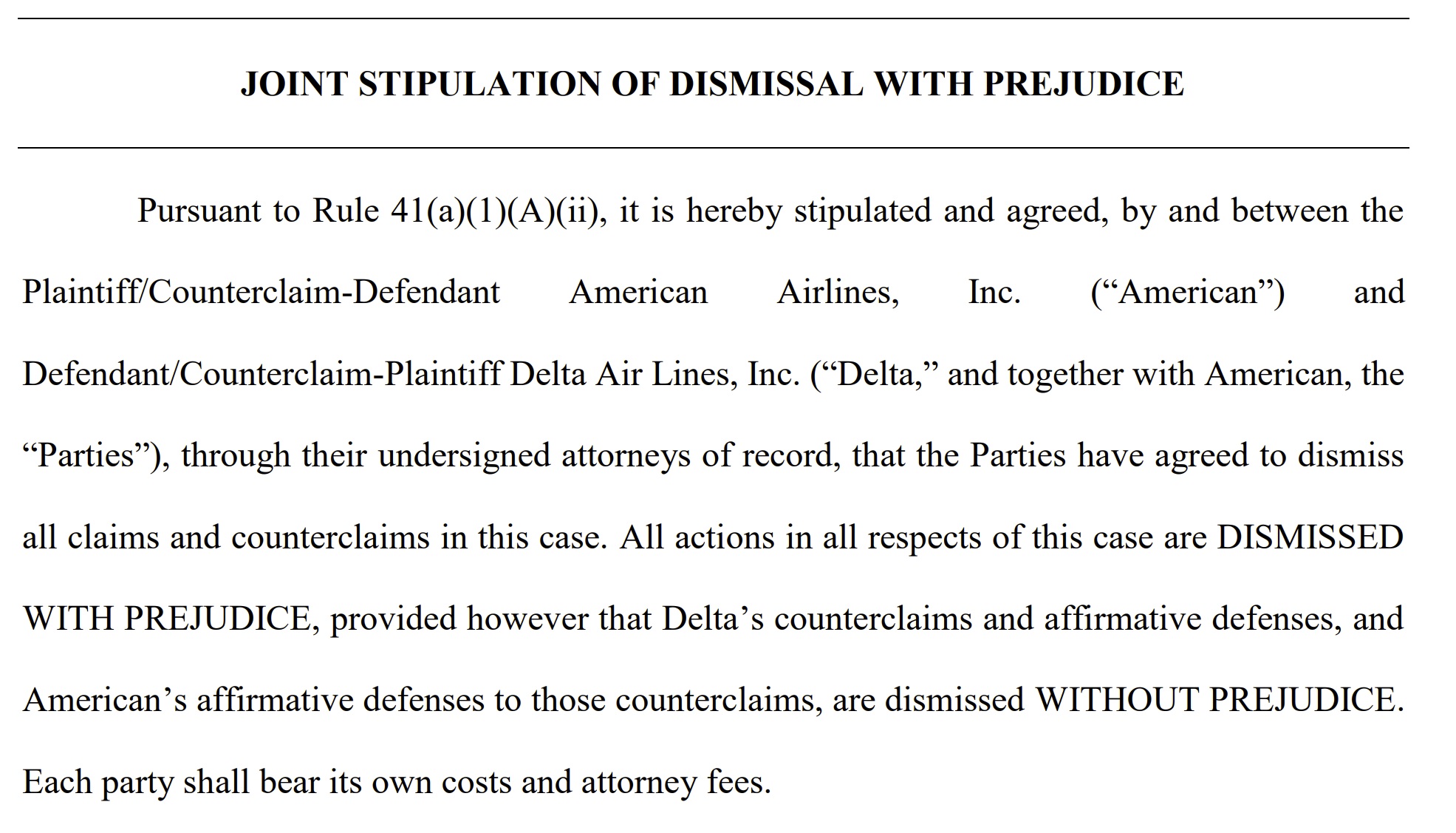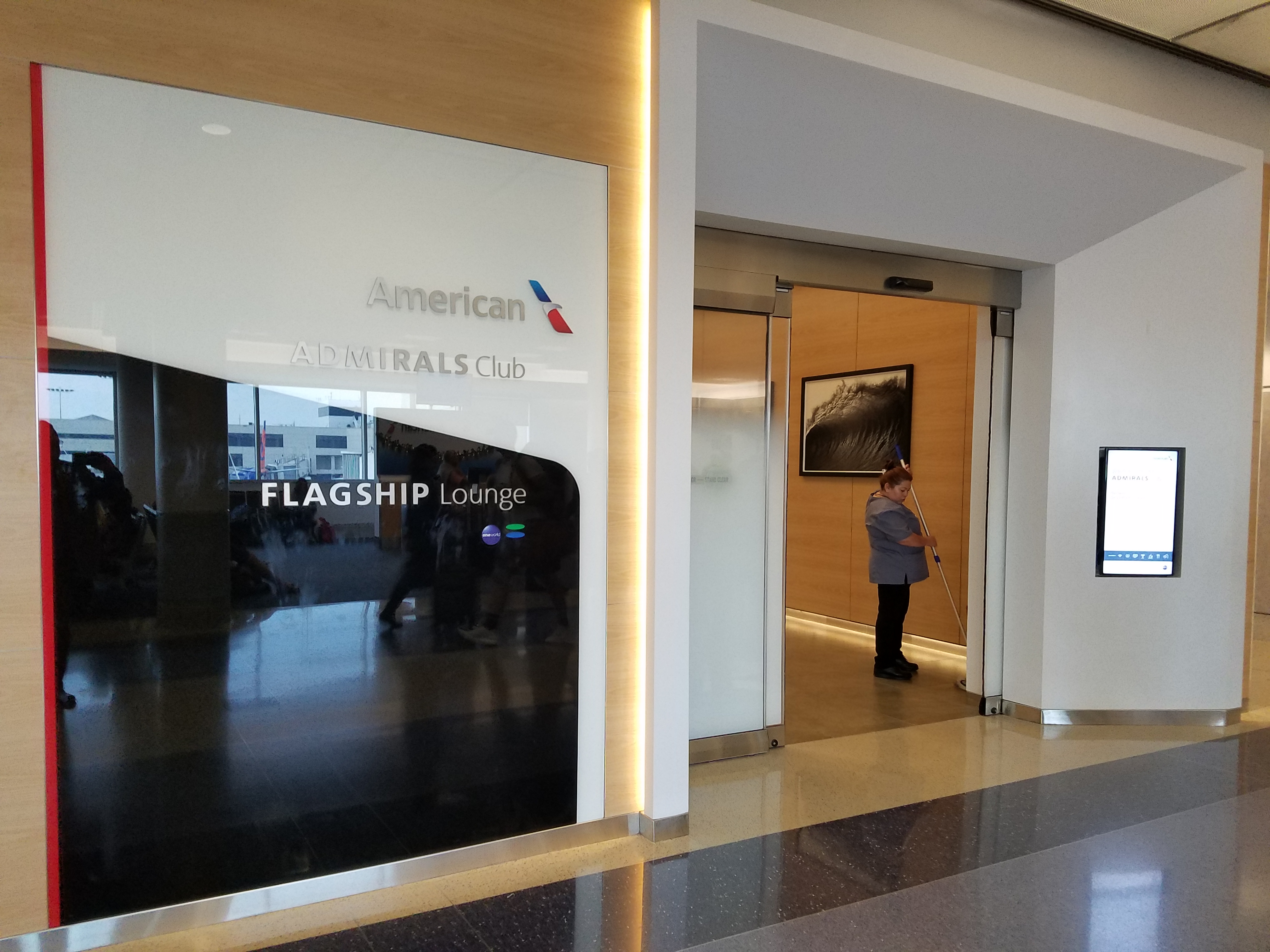American Airlines refers to long haul international and premium transcon flights as ‘Flagship flights.’ They represented 5% of American’s flights in pre-pandemic times but the airline says they generated more than half of premium cabin revenue. The airline has told employees that “[n]early 50 percent of first and business passengers on Flagship flights are elite customers.”
They extend this branding to lounges (Flagship lounge and first dining) and other premium services. And in December 2019 they sued Delta for improperly using the term flagship in some press releases – confusing consumers into thinking Delta has American’s great Flagship product.
In the lawsuit in the Northern District of Texas American wrote they believe
While lawyers will want to go to most any length to ‘defend a mark’ this definitely seems like a case where Delta was merely engaging in an ordinary use of the term – and there was little potential for customer confusion with Delta somehow benefiting from American’s superior (sic) reputation in premium airline products.
American and Delta have now settled right as the case prepared to go to trial.

We don’t know details of the settlement, so we’ll have to see whether future releases from Delta describe their products using the term ‘Flagship’ or not. It seems like a reasonable guess they steer clear of the word, since that seems easy enough to agree to (just call it Premier or Crown Jewel, although perhaps Premier would draw a suit from United!).
‘Flagship’ Is A Common Word, But American Claims Ownership For Premium Air Travel
The word Flagship itself is used in many contexts. It is trademarked by several different companies for different purposes. Flagship Athletic Performance filed for “weightlifting, metabolic training, strength development, mobility, and yoga.” Shulton filed for fragrances. There’s the Visa Signature® Flagship Rewards Credit Card from Navy Federal. Even in the area of rewards, where American Airlines competes, they don’t have ownership over the word Flagship.
In losing protection for ‘Big Mac’ in the European Union, the sandwich is described as McDonalds’ flagship. Apple’s flagship store design can be trademarked. Lexus has trademarked a new model name that “hints at a more powerful flagship SUV.” Nike has a ‘flagship’ store in New York.
However here American’s claim is that they have exclusive use of Flagship to describe premium products in air travel. And Delta has referred to their business class suite with doors as their “flagship” Delta One Suite. They’ve also referred to their Airbus A350 as their flagship. And their new SkyClub in Atlanta is also a flagship SkyClub, since it’s promoted as a jewel in the lounge crown at their largest hub.

Consumers Can’t Possibly Be Confused In A Way That Harms American
Delta has the better consumer reputation and earns a revenue premium because of it. It’s absurd to think that Delta would try to confuse consumers into thinking they were getting an American Airlines product when buying travel from Delta. They’ve worked hard on their own brand and they believe it is responsible for outperforming the industry in general and American Airlines in particular.
What’s more, American’s President Robert Isom says the carrier is laser focused on competing against low cost carriers Spirit Airlines and Frontier. The focus on degrading their economy product has eroded the value of their premium brand. Most passengers fly coach. Most premium passengers buy coach domestically, since companies often have rules about the length of a trip before they’ll pay for business. And it’s that experience that colors consumer expectations of what American can deliver in its flagship product.
If there’s any consumer confusion it seems like it would work in reverse – that customers might accidentally buy American Airlines tickets instead of Delta tickets. The more Delta uses the term flagship, and equates it with its own friendlier and on-time product, the more American Airlines benefits from the term’s uses – precisely because potential American Airlines customers might be confused and think they’re buying Delta.


All the Flagship Lounges and Check-In are not even open.
This is not ridiculous, it is trademark infringement to knowing use a work or phase of a competitor’s trademark in advertising language. 30 years of marketing experience this was intentional by DL hoping they wouldn’t get caught. DL has no experience like the AA Flagship lounge to begin with, especially compared to Flagship Dining, which will be coming back sooner than later.
As a marketer, I applaud AA for sticking up for it’s TM and again DL show’s it’s true colors.
Did American make the announcement at The Four Seasons?
I wonder if Delta still considers themselves an American carrier.
Or, which Delta concourse American uses at DFW
The term flagship predates the airline industry and Delta’s use is in line with how it has been used in the maritime industry.
The extent of trademarks is frequently challenged as is noted above; it is precisely when cases like this take place that what was presumed to be trademarked is narrowed as is noted by the Big Mac case.
It will be interesting how Delta uses “Flagship” but it is very unlikely they are agreeing to cease and desist.
Since American execs just said at an investor conference they will not replace 50-60 widebody aircraft and will operate a smaller international network because they have been unable to profitably operate that many aircraft on a year-round basis, AA just might be accepting that the premium international market is not one in which they can have a disconnect between marketing and reality.
@keitherson Flagship check-in is still open where available, but that’s the extent of of the Flagship service. You get to experience Admirals Club-level food and beverage in certain former Flagship Lounges, though.
Good for American for taking this fight right to Delta. It’s foolish to think that Delta didn’t know that AA uses Flagship for premium services. If the case is settled then we won’t see Delta using Flagship. Non one wants to lose in Federal court since you’ll pay the other party’s legal fees so it wasn’t worth it to Delta.
Marshall,
you would think that if AA won, DL would have been forced to immediately cease and desist.
As of this moment, Delta’s seat map for the A350 says
Airbus A350-900 (359)
Flagship Aircraft
The fact that the case was settled, not summarily dismissed, showed it had some merit. How much is unknowable, since we don’t have all of the facts. But one never knows what a judge will decide. As the old saying goes, “You’re better off with the devil you know than the devil you don’t.”
Delta’s counterclaims in the lawsuit (directed at invalidating American’s trademarks) are an entertaining read — they essentially just mock American and its infringement claim.
Mocking or belittling someone might sting but it doesn’t change the legal relationship between the two.
Delta today still refers to the A350 as its flagship aircraft on its website.